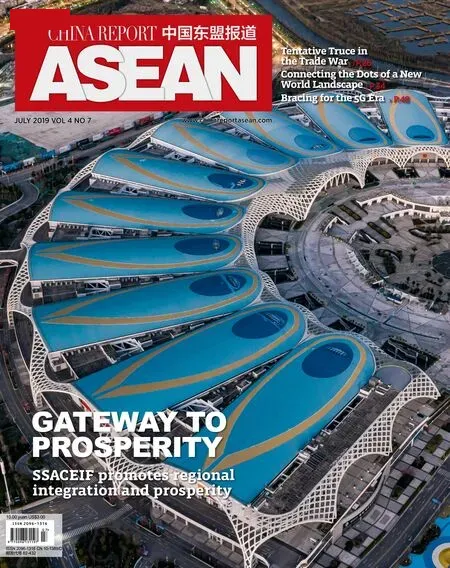TENTATIVE TRUCE IN THE TRADE WAR
On June 29, Chinese President Xi Jinping and U.S. President Donald Trump sat down for talks on the sidelines of the G20 Summit in Osaka, Japan. The two leaders clinched a deal to resume economic and trade consultation between their countries based on equality and mutual respect. The U.S. pledged not to impose new tariffs on imports from China. Economic and trade negotiating teams of the two countries will work on specific issues soon.
This Xi-Trump meeting pressed the pause button on the trade conflict between the two countries. Although China's ultimate goal of elimination of all United States tariffs on Chinese goods is still far away, the agreement between the two sides to rekindle trade talks and hold off on new tariffs on Chinese goods did send positive signals.
The world is undergoing an irreversible trend of global economic integration, and finding an end to the year-long China-U.S. trade dispute has become a bigger issue affecting far more than the two economic giants themselves.
China and the United States both benefti from cooperation and lose in confrontation. Cooperation and dialogue are better than friction and confrontation. Efforts to overcome the last breakdown in trade talks provide hope that the world economy can be prevented from spinning out of control. A trade war between the two countries will not only directly exert a negative impact on economic growth of both nations, but will also cause“collateral damage” around the world. A “third party” with friendly ties to both China and the United States, ASEAN may be fniding it difficult to remain neutral, even if it is the safest move. Prior to the Osaka G20 Summit, the 34th ASEAN Leaders'Meeting was held in Bangkok, and participating leaders of ASEAN member states all expressed concern about the lengthy China-U.S. trade dispute, worrying that its exacerbation would impact ASEAN's attitude against protectionism and bring risks that may undermine regional cooperation.

